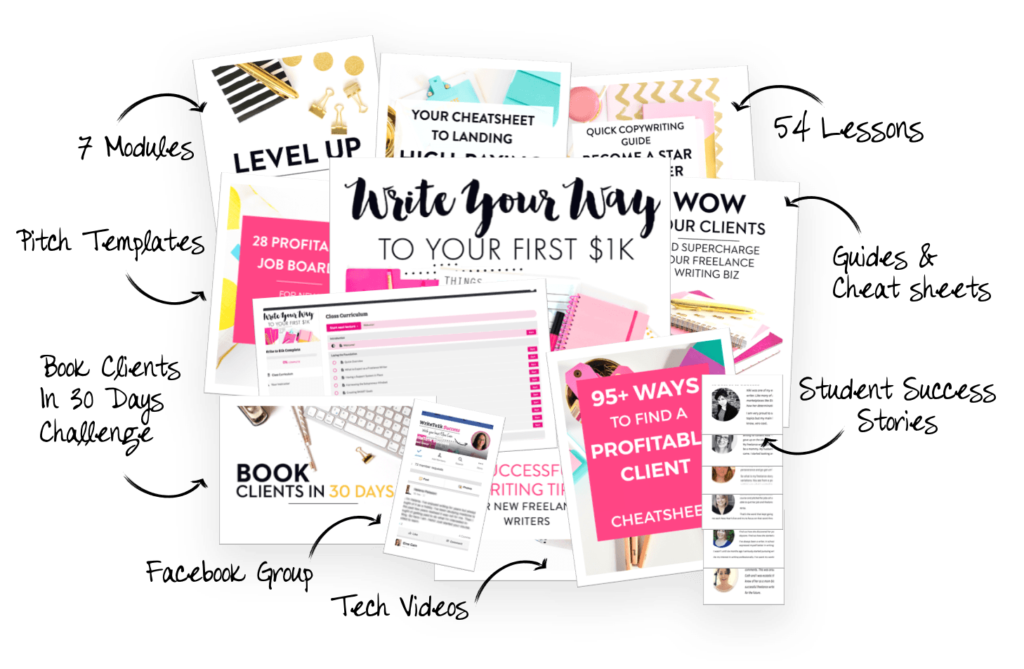Note: Affiliate links may be used in this post. When you buy through my affiliate links I may earn a commission at no extra cost to you. Full disclosure here.
How to Become a Freelance Blogger
Do you want to learn how to become a freelance blogger?
Freelance blog writing can be an amazing way to earn money online! You don’t need a ton of experience to get started and be successful either.
I absolutely love freelance blogging because I get paid directly to write content for other bloggers. I earn over $3,500 a month from freelance writing for several travel bloggers and a fashion blogger. It’s such a fun side hustle.
Here’s everything you need to know about how to get into freelance blogging.
Related: Freelance Writing Income Report: How I Earned $3,647
What Is Freelance Blogging?
Freelance blogging is a type of freelance writing.
As a freelance blogger, you will be hired by businesses to write blog posts for them. Your clients could be brick-and-mortar businesses, online businesses, or online publications who are looking for well-written blog content.
Since you will be a freelancer and not an employee, you are free to take on as many or as few projects as you want and work on your own schedule. You do need to be able to commit to deadlines for writing assignments, but aside from that you have a lot of flexibility and freedom in your work.
This is a job that can be done from anywhere as long as you have a laptop and an Internet connection. You can write from your couch in your pajamas, or travel the world and work from a cafe on the beach as long as it has WiFi!
How Much Do Freelance Bloggers Make?
Freelance bloggers are generally paid per blog post.
Typically, the rate is either per word or a flat rate per blog post.
For a per word rate, entry-level writers can expect to get paid $0.03 to $0.05 per word. This works out to between $30 and $50 for writing a 1,000 word blog post. More experienced writers can easily earn between $0.10 to $0.50 per word. This works out to between $100 and $500 for writing a 1,000 word blog post.
Alternatively, some clients will offer a flat rate like $150 per blog post. Blog posts might have varying word count requirements, but the rate stays the same.
Related: How Much Do Freelance Writers Make? (Plus Income Reports!)
What Skills Do You Need?
As a freelance blogger, there are several important skills you need, as well as additional skills that can set you apart from the crowd.
Some important skills to have are:
- An excellent command of the English language (many clients require their freelance writers to be native English speakers)
- Good grammar and spelling (as well as knowledge of spell-check tools and Grammarly for checking to make sure your work is error-free)
- The ability to complete assignments in a timely manner and meet deadlines
- An engaging writing style that is clear and easy to understand
- The ability to do research on topics you may be unfamiliar with in order to write detailed, thorough, and accurate blog posts about them
- Knowledge of SEO (search engine optimization) best practices for web content
These are skills that you can teach yourself for the most part. You don’t need a master’s degree in writing in order to be a successful freelance blogger!
You can also take an online course about how to become a freelance writer if you want to learn the skills you need faster and get help in securing your first clients.
This is a great course for aspiring freelance bloggers.
Step 1: Establish Your Online Presence
If you are serious about becoming a freelance blogger, you will need to first establish a professional online presence. At minimum, you should create Twitter and LinkedIn accounts for your freelance blogging business.
You should also have your own freelance writer blog.
This is very easy to create, even if you aren’t tech-savvy at all. You should avoid a free platform such as WordPress.com or Wix, because you will not be able to have your own domain name and it looks less professional..
Instead, I recommend starting a self-hosted website with Bluehost. It’s only $2.95 a month for web hosting and you get a FREE domain name ($15-20 value) plus they set everything up for you. You’ll be able to choose from tons of free WordPress themes for freelance writer blogs as well.
Click here to get started with Bluehost.
I also wrote a detailed step-by-step guide on how to start a blog that you can follow if you need more help. The whole process takes less than an hour!
Tip: When it comes to choosing a domain name, try to stick with a .com ending (it’s more professional) and use your full name or a variation of it. You can also come up with a unique name for your freelance writing business if you’d prefer.
Step 2: Build Your Portfolio
Once you have created your own blog, you have a place to host samples of your work. Now it’s time to start building your writing portfolio!
One easy way to build your portfolio is by publishing blog posts on your own blog. (And did you know you can also make money from your blog too?)
You can also reach out to other bloggers and online publications and offer to write a guest post for them. This is a great way to build your portfolio while gaining exposure and potential clients at the same time.
Most freelance blogging jobs will want to see several examples of your writing first, so having your own blog and guest posting are great ways to show that.
Step 3: Pitch Freelance Blogging Jobs
The next step once you’ve built your portfolio is pitching!
The easiest way to do this is to look at freelance writing job boards. You’ll be able to see postings from clients with exactly what they are looking for, what the pay rate is, and the steps you need to take to apply.
Here are the best places to find freelance blogging jobs:
Personally, I have had the most success with ProBlogger. I have applied for and gotten three freelance blogging jobs from their postings.
It’s a great place to start looking for freelance blogging jobs, although all of the websites listed above have great leads for freelance blogging gigs!
In the beginning, the best thing you can do is cast a wide net and pitch for as many jobs as possible! Don’t give up if you don’t hear back from your first few pitches either. It can take a little time to land your first gig, but once you do, it only gets easier when it comes to securing subsequent freelance writing jobs.
You can also specifically look for long-term assignments with a guaranteed amount of work assigned per week if you are looking for something steady.
Step 4: Find Your Niche
In the beginning, you might need to take freelance blogging jobs where you are writing about a wide variety of topics in order to build experience.
However, after you’ve landed a few jobs, you can start to develop your personal freelance writing niche. Having an area of expertise is great for establishing yourself as an authority in your niche and landing higher-paying gigs.
Some ideas of high-paying freelance writing niches are:
- Personal finance
- Technology
- Digital marketing
- Education
- Real estate
- Health and fitness
Related: 14 Profitable Freelance Writing Niche Ideas
Choosing a niche that you enjoy can also help ensure that you don’t experience burnout from constantly writing about topics you have no interest in.
Personally, I focus on travel because it’s a niche I have tons of experience with.
Becoming a Freelancer Blogger
This guide showed you how to become a freelance blogger and get paid to blog.
If you are looking for more help on how to begin freelance blogging, I highly recommend taking an online course to kickstart your freelance blogging career.
Write to 1K is the perfect online course for beginners. Created by Elna Cain, a professional blogger and freelance writer, this course contains a step-by-step guide for how to land your first freelance writing gig in just a few short weeks.
The investment will more than pay for itself after just a few freelance writing jobs.

